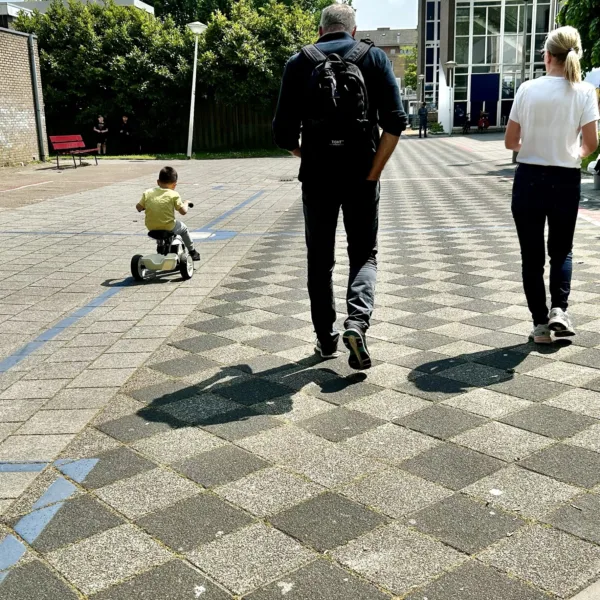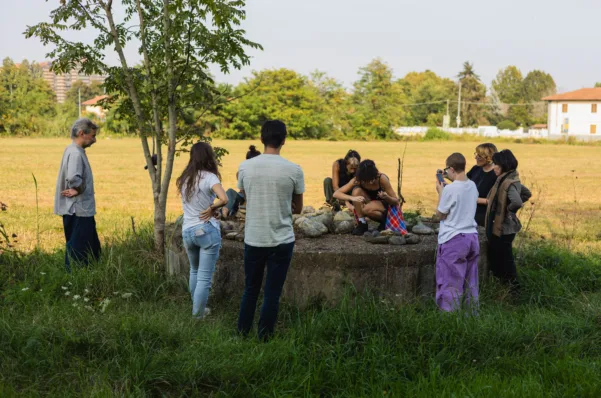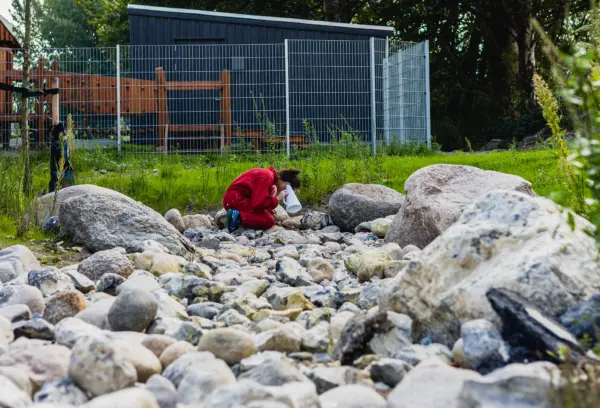Secure a learning mechanism
When working with long-term transformations, learning is something innate and continuous along the process and therefore, it is crucial to establish a learning mechanism from the start. Doing so creates room for iterations of your work and helps highlight progress and successes along the way.
Establishing a usable format for a learning mechanism is highly recommended when working with transformation processes. It helps you capture dos, don’ts, challenges, and successes that might otherwise get lost over time or through layers of complexity.
A learning mechanism goes beyond classic evaluation and focuses on “what we learn” and “what we learn about what we learn”.
Prioritise funding for learning
Learnings are an embedded and inevitable part of a transformation process but that does not mean they should be taken for granted. Facilitating, highlighting, and ensuring learning throughout the entire process is a huge and important task that needs allocated resources. Therefore, it is important to include means for this in the budget - financial resources as well as time. Not only for the ones responsible for handling the learning activities but also for all the people involved who need to deliver learnings.
Make documentation easy
To grasp all the learnings of a long-term process, documentation of such a process is needed. Knowing what has happened is part of knowing what we need to either change or carry forward in our work. Make this part easy and doable.
When keeping a logbook of activities, refrain from making it too technical or complex; use easy and applicable templates and formats. Keeping track of activities (workshops, events, and participants) helps show and visualise the progress of the things that can otherwise be hard to show in numbers. This can also push for new ways of measuring and showcasing impact.
Learn from your mistakes and ensure agility
Transformation processes require room for flexibility, agility, and responsiveness in the face of evolving challenges and opportunities. While certain activities yield positive outcomes, others do not always produce the desired results. Ongoing monitoring, evaluation, and feedback mechanisms are crucial for identifying what works and what does not as well as to make informed decisions moving forward. You must ensure agility and openness are enabled in the mechanism to best capture learnings from your transformation process.
The themes or categories you find important as guidelines or measurements of learning might change throughout the project and transformation process. To ensure an agile transformation, it is crucial to create an agile learning mechanism.
Foster peer feedback
A key element in the learning process is peer feedback. When working with a wide variety of actors and stakeholders, facilitation of proper feedback sessions is fundamental for people to share and exchange learnings across actors, organisations, and sectors.
Feedback can have various formats but is a key ingredient in transforming places. Learning is not only about keeping track of things and results, it acts as a crucial element in co-creation, which helps relationship-building and mobilises the movement.





